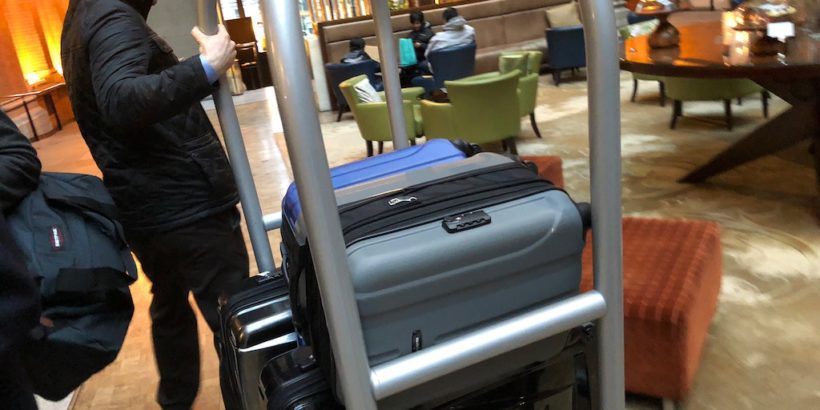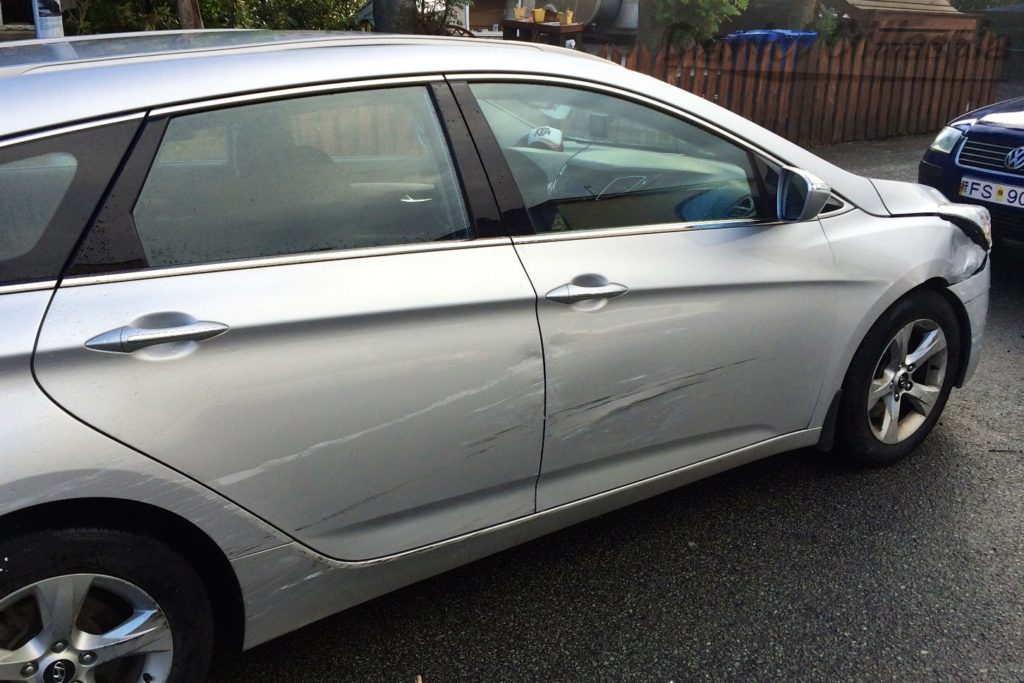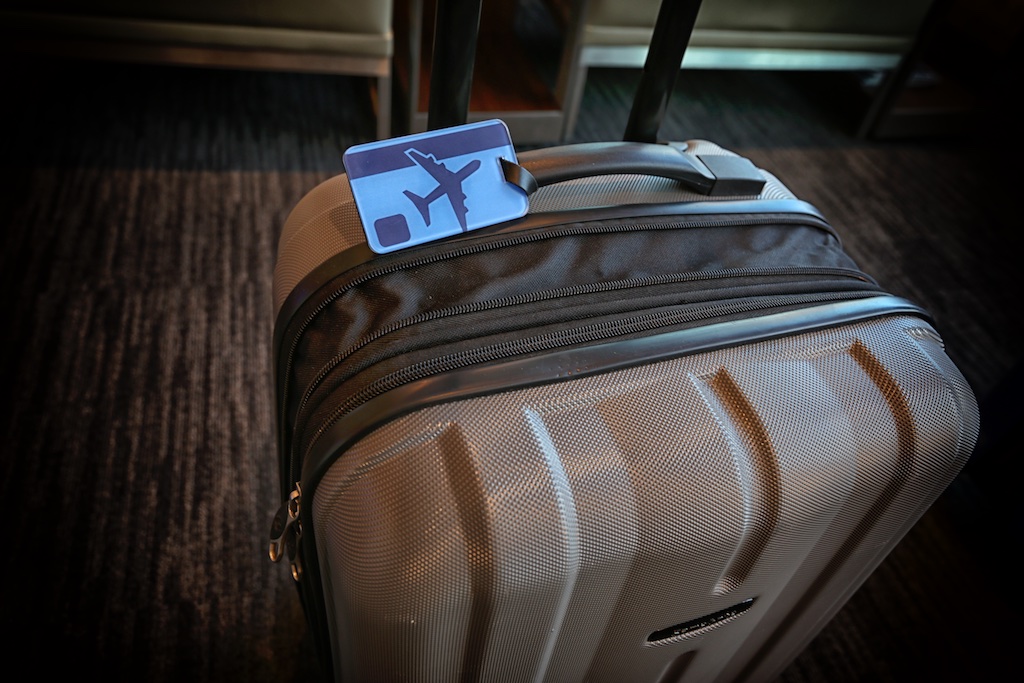

The Chase Freedom and Chase Freedom Unlimited are two very popular cash back credit cards that offer great rewards and come with no annual fee. The Freedom earns a respectable 5% back on rotating quarterly categories and the Chase Freedom Unlimited earns a solid 1.5% back on all purchases.
But beyond the rewards, these cards also offer some decent travel insurance benefits and coverage that many don’t know about. In this article, I will break down the Visa Platinum and Visa Signature benefits for these cards and also show you some alternative options you might want to think about for getting better protections for things like rental car insurance and baggage delay protection.
Table of Contents
The Chase Freedom cards (both the Chase Freedom and Chase Freedom Unlimited) come with different types of travel insurance benefits depending on the type of Visa credit card that you are issued. I’ll go into detail below about these different types of travel insurances and tell you everything you need to know about them.
The Chase Freedom cards (Freedom and Freedom Unlimited) come in two forms: the standard (Visa Platinum) version and the upgraded Visa Signature version. You can’t apply for one version and instead you will be approved for one or the other when you apply based on Chase’s standards. If you are approved for a Visa Signature version, you’re usually given a minimum credit line of $5,000.
These different versions of Visa cards come with different types of benefits and travel insurance and I’ll go into detail below.
Both the Freedom cards come with rental car insurance (also known as Auto Rental Collision Damage Waiver). The Auto Rental CDW benefit provides reimbursement for damage due to collision or theft up to the actual cash value of most rental vehicles
This is secondary coverage in your country of residence which means it supplements, and applies in excess of, any valid insurance. In other words, Auto Rental CDW will not pay for theft or damage reimbursable by your own insurer, employer, employer’s insurance, or any other valid and collectible reimbursement. But you can get coverage for deductibles and other charges such as administration fees.
Outside your country of residence or if you do not have automobile insurance, you do not have to claim payment from any other source of insurance before receiving coverage under this benefit. This essentially turns the coverage into primary rental car coverage but only outside your country of residence.
If you want primary rental car coverage everywhere you go, you’re much better off to go with a card like the Chase Sapphire Preferred (full review here).
The cards offer coverage for you (the cardholder) and any additional drivers permitted to operate the vehicle under the terms of the rental agreement (basically other people who have signed the contract).
It’s also worth noting that there are some exceptions to the coverage such as renting certain vehicles. Excluded worldwide are:
Also, the benefit only covers vehicle rental periods that do not exceed or are not intended to exceed 31 consecutive days within or outside of your country of residence.

When people talk about travel insurance, they are often thinking mostly about trip cancellation and interruption. These protections are very valuable because they reimburse you for pre-paid, non-refundable costs in the event that certain circumstances prevent you from traveling.
For example, you might book a trip with pre-paid airfare and hotel stays that are all non-refundable (the non-refundable rates are usually always the cheapest). But then you get sick and can’t travel. If you have trip cancellation, you can get reimbursed for all of those expenses (with certain cards). I’ve used this perk when I’ve had to cancel big trips before and it has saved me thousands of dollars before.
But the amount that you can get covered depends on the type of Freedom card that you have (Platinum versus Signature).
The standard Visa Platinum offers protection up to $1,500 for each covered person per trip. Here are what its terms state:
Trip Cancellation and Interruption benefits reimburse non-refundable passenger fares charged by an airline, cruise line, railroad, or any other Common Carrier up to one thousand five hundred ($1,500.00) dollars for each Covered Person per Trip to a maximum of six thousand ($6,000.00) for all Covered Persons traveling together on the same Trip, if a Loss results in cancellation or interruption of the travel arrangements.
The Visa Signature offers protection up to $5,000 for each covered person per trip. Here are what its terms state:
If a Trip Interruption occurs, the Company will reimburse you for up to the maximum Benefit Amount of five thousand ($5,000.00) dollars for: the forfeited, non-refundable pre-paid land, air and/or sea transportation arrangements that were missed
If you really want better travel insurance coverage you should look into the Chase Sapphire Reserve, a Visa Infinite Card. That’s because you can get coverage up to $10,000. Here are what its terms state:
Trip Interruption insurance reimburses you or your Immediate Family Members for up to ten thousand ($10,000.00) dollars for each Covered Trip if a Covered Loss causes interruption of the Covered Trip on the way to the point of departure or after the departure of the Covered Trip. Covered Trip means any pre-paid tour, trip or vacation[…]
One major difference between the two types of Freedom cards is the type of expenses covered by trip cancellation. Compare all of the expenses covered by the Freedom Platinum versus the Freedom Visa Signature.
What types of expenses are eligible for reimbursement? Airline, cruise line, railroad and other Common Carrier fares.
Some of the prepaid travel arrangements that are eligible for reimbursement include, but are not limited to, airline tickets, train tickets, bus tickets, prepaid tours, hotels, and rental cars.
Thus, based on the terms and conditions, it appears like the Chase Freedom Visa Signature version offers much more expansive coverage (though you may want to inquire to see if the Visa Platinum list is exhaustive).
You’ll need to pay special attention to the terms to make sure that your specific type of loss is covered. The following types of reasons for cancelling your trip may be honored:
Some types of situations where you won’t get coverage include times when you’re dealing with a pre-existing condition and other scenarios so make you’re aware of those.
You will need to supply documentation for these protections to kick in. For example, if you got sick and couldn’t travel you should expect to supply a doctor’s note. You will also need to keep all of the documents related to all of your travel expenses because they will likely request you to show them everything you can.
With the Chase Freedom Visa Signature card you can also get coverage for costs you incur to repair or replace Checked Baggage and/or Carry-On Baggage and personal property contained within due to physical loss or damage, if the loss (including theft) or damage occurs during a Common Carrier Covered Trip.
You, the Primary Insured Person and your Immediate Family Members are covered $3,000.00 for each Insured Person for each Common Carrier Covered Trip but only up to $500 for each Insured Person for each Common Carrier Covered Trip for jewelry, watches, cameras, video recorders, and other electronic equipment.
If you want more luggage protections such as baggage delay protection then you’ll want to consider the Chase Sapphire Preferred and the Chase Sapphire Reserve. Both of those cards will allow you to go out on the town and purchase things like clothes and toiletries while you await for your luggage to be returned. Baggage delay for the Sapphire Reserve kicks in after only six hours which is one of the best policies.

With the Chase Freedom Visa Signature card you can get roadside assistance. Help is available by calling Cross Country Motor Club at 1-866-860-7978, toll-free, 24 hours a day, 365 days a year. You are covered up to a maximum of $50 for each service event, up to four events each year.
Coverage is provided while traveling in the U.S. and Canada and includes:
The Chase Freedom Visa Signature cards come with travel accident insurance which is basically a way to get coverage when some seriously tragic events take place like a loss of life or some type of permanent disfigurement.
With both of the Freedom cards you also get Travel and Emergency Assistance Services. If you call the benefit administrator you can get referrals for certain emergency services.
For example, if you’re in a foreign country and you need to locate a physician or even something like a lawyer they can help. They can also assist with replacing lost tickets, lost luggage, translations, and other requests. The key to know here is that you are 100% responsible for all of the services that they refer you to.
If you were looking for coverage for certain health-related, the Chase Freedom Visa Signature version allows you to be eligible to receive up to a maximum of $2,500.00 (subject to a $50.00 deductible) for medical expenses not paid or payable by your medical insurance or other reimbursement incurred as a result of Emergency Treatment of a sickness or accidental injury occurring during the course of Your Trip.
Certain terms apply to the treatment but you can get coverage for things like:
If you need to be evacuated in the event of an emergency you can also get Emergency Evacuation and Transportation benefits up to $100,000.00.
Overall, the Chase Freedom cards do offer some level of decent travel protections. But if you really want more comprehensive travel benefits and higher limits, I’d highly suggest that you look into a card like the Chase Sapphire Preferred or the Chase Sapphire Reserve. You’ll feel a lot better about the comprehensive nature of those travel protections.
Daniel Gillaspia is the Founder of UponArriving.com and the credit card app, WalletFlo. He is a former attorney turned travel expert covering destinations along with TSA, airline, and hotel policies. Since 2014, his content has been featured in publications such as National Geographic, Smithsonian Magazine, and CNBC. Read my bio.